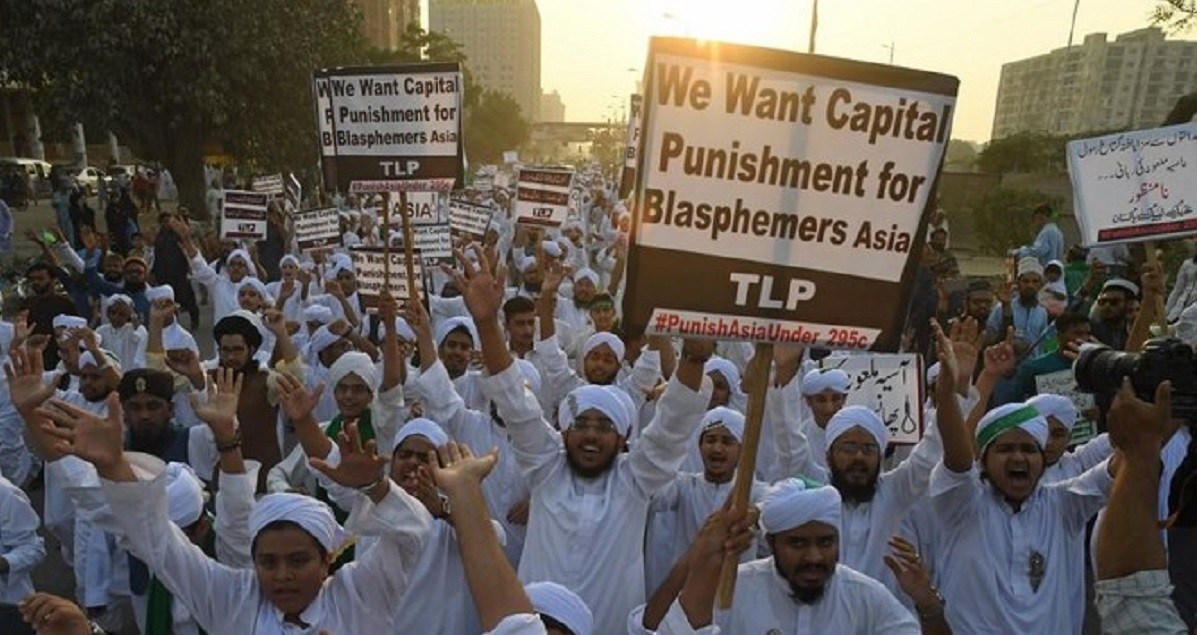Umerkot blasphemy killing reminds Pakistan’s growing culture of mobocracy

The recent case of blasphemy killing in Pakistan reflects a grim reality- that mobocracy has moved deeper into the cultural establishment of the country and the actors have failed to stop its spread.
The administration has not shown any intention to end the situation, leading to a lacklustre attitude which is damaging the country’s global image.
A shocking episode of mobocracy and blasphemy recently emerged from Umerkot in Sindh province where a doctor was charged for posting alleged blasphemous content on social media, a crime considered heinous in the nation that continues to struggle to provide a “full square meal to all its citizens.”
The doctor, who could have saved the lives of many people in distress, was killed during an alleged encounter in Mirpurkhas.
Things took a further ugly turn when an enraged mob chased the family members of the physician, snatched his body and set it on fire.
In another shocking incident, the family of slain blasphemy suspect Abid Ali in Quetta was forced to pardon police officials for the custodial killing of the victim.
Reacting to the two incidents of shame, Dawn News said in its editorial: “Such incidents go beyond zealotry and denial of due process; they confirm a pattern of unlawful police violence endorsed by the mobs. In both these cases, what is needed is a thorough probe; it is the state’s duty, after all, to protect suspects and the judiciary’s to ensure a fair trial.”
“More than four decades of failed policies and religious hegemony have shaped a grim reality where vulnerable citizens are held captive to lethal narratives,” the editorial blamed the government and said.
The root cause behind the continuation of mob violence remains unknown.
However, some experts believe economic distress, deteriorating security and state patronage for obscurantism are the key causes to be blamed for the existence of the shameful crisis.
Another leading Pakistani daily also voiced its anger over the administrative callousness that led to the occurrence of the Umerkot horror where the doctor lost his life since the administration was more busy winning the heart of a mob than protecting the victim.
In an opinion piece, The News International said: “What was perhaps a greater tragedy was enacted within the precincts of the police station of the jurisdiction where the doctor was shot dead. Some clerics and zealots arrived at the police station to congratulate the police officials on their deed of killing the blasphemy suspect. There are videos of police officials being garlanded and showered with rose petals. It breaks your heart to see that they accept this accolade. One police officer readily bows his head for the garlands, one after another.”
“Now, after the outrage expressed by civil society and human rights defenders, action has been taken against the relevant police officials and an inquiry ordered – though belatedly on Friday. But what do they, the rulers, intend to do to erase the dark passions that have infiltrated the minds of such a large number of people in this country?” it said.
The Pakistani administration and judiciary should act fast in reducing blasphemy-related mob violence. Pakistan’s global image has been hit hard over numerous issues including terrorism and inflation rise in recent times.
The government should focus on giving proper justice to citizens rather than deciding whom to be charged for blasphemy,especially in the context that in many cases these charges remain false and targeted.
Mob violence should not become a new normal for the nation that has to fight several odds to recover from its current state of struggle.






